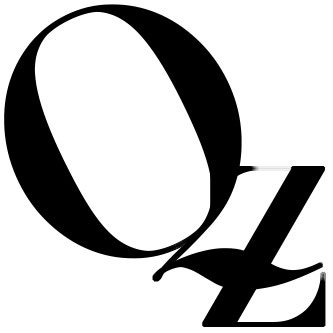Subtotal ₹0.00

Pakistani-Canadian Arrested for Smuggling U.S. Tech to Pakistan Military: What You Need to Know
Imagine buying a simple computer chip online—something that goes into your phone, car, or even kitchen appliance. Now imagine using that same chip to develop weapons or surveillance equipment. That’s exactly the type of technology that’s at the center of a recent international incident.
Let’s dive into the story of how a Pakistani-Canadian man allegedly smuggled sensitive U.S. technology to military programs in Pakistan—and why it matters to all of us.
Who Was Arrested and Why?
The U.S. Department of Justice recently charged a dual citizen—of Pakistan and Canada—named Ahsan Wali Khan. He was arrested for allegedly smuggling restricted U.S. electronics to entities linked to the Pakistani military.
So what was Khan accused of exactly? According to federal authorities, he played a major role in a global network that bought and illegally exported American-made tech, including items with military and nuclear use potential. These weren’t just regular parts you find in your office printer. They were sensitive components designed for radar systems, electronic warfare, and missile guidance technology.
How Did the Operation Work?
If you’re thinking of a secret spy movie, you’re not far off. Here’s a basic breakdown of how the alleged smuggling ring operated:
- Using Front Companies: Khan and his associates reportedly created fake companies that seemed legitimate on paper—but their real job was to buy U.S. technology and hide where it was really going.
- Fooling U.S. Suppliers: They lied about the end-users of these items, convincing American companies that the items were for civilian use so they could skip government export checks.
- Shipping via Third Countries: The goods were often shipped through other nations like the UAE to mask their final destination in Pakistan.
What Kind of Technology Was Involved?
This wasn’t just any old off-the-shelf tech. The items smuggled included highly specialized equipment such as:
- Field-Programmable Gate Arrays (FPGAs): These are powerful chips that can be programmed after manufacturing and are commonly used in advanced weapons systems.
- Oscillators and Amplifiers: Core components in communications, jamming, and radar systems.
- High-performance microcontrollers and processors: The brains behind many smart cyber and missile technologies.
While most of this technology has civilian uses, it can easily be repurposed for military applications. That dual-use capability is exactly why the U.S. government keeps a close eye on where it’s going.
Why Is This a Big Deal?
There are several reasons why this case has made international headlines—and why it could affect more than just one country.
1. National Security Concerns
The key issue here is technology control. Advanced American hardware is not meant to boost the military might of countries that could use it against U.S. interests or allies. When such tech ends up in the wrong hands, it poses serious risks to global and regional security.
2. Undermining Export Laws
The U.S. has strict rules about what can be sold overseas—especially when it comes to things with nuclear, aerospace, or military applications. Circumventing these laws is like finding a backdoor into someone’s house instead of knocking on the front door. It’s a violation of trust and process.
3. Surveillance and Defense Ramifications
Imagine this: A nation could use these smuggled technologies not just to improve weapons but also to develop surveillance systems that track people or spy on communications. That’s a future nobody wants to see becoming reality.
Who Else Is Involved?
Khan wasn’t acting alone. Authorities mention at least four other people believed to be part of this network. The smuggled tech was allegedly routed to companies and organizations that supply Pakistan’s military and weapons program. That includes institutions tied to Pakistan’s nuclear weapons infrastructure.
Here’s something important to note: These Pakistani entities have already been blacklisted by the U.S. for their roles in past proliferation activities. That means Khan and his team weren’t unaware—they knew exactly who and what they were supplying.
What Can We Learn from This?
So, what does all of this mean for the everyday person scrolling through the internet or watching the news?
1. The Digital Battlefield is Real
Today’s wars aren’t just fought with guns and tanks, but with lines of computer code and silicon chips. National security now includes protecting tech supply chains.
2. Technology Isn’t Always Innocent
Every gadget, chip, or server can be turned into a tool of conflict if placed in the wrong hands. That’s why governments set strict export controls—even if it seems like “just a part.”
3. Global Cooperation is Crucial
To stop these shady operations, countries need to share intelligence and tighten loopholes. From customs officers to tech companies, everyone has a role to play.
What Happens Next?
Khan faces serious charges under U.S. law. If convicted, he could be facing years—possibly decades—in prison. More arrests and investigations are likely to follow, as officials work to dismantle the web of companies involved in the operation.
Final Thoughts
While this story sounds like something straight out of a thriller, it’s a real reminder of how connected our modern world is—and how fragile these connections can be when trust is broken.
As technology keeps advancing, so must our awareness of how it’s used—or misused—around the globe. It’s no longer just about who builds the tech, but also where it ends up and what it’s used for.
Have thoughts on tech security or global regulations? Drop a comment below—we’d love to hear your perspective!
Stay tuned for more updates on global tech, cybersecurity, and national defense stories. Don’t forget to subscribe for weekly insights.
SEO Keywords used: U.S. export laws, tech smuggling, military-grade technology, sensitive electronics, Pakistani military, national security, export control violations, global tech security, U.S. Department of Justice







